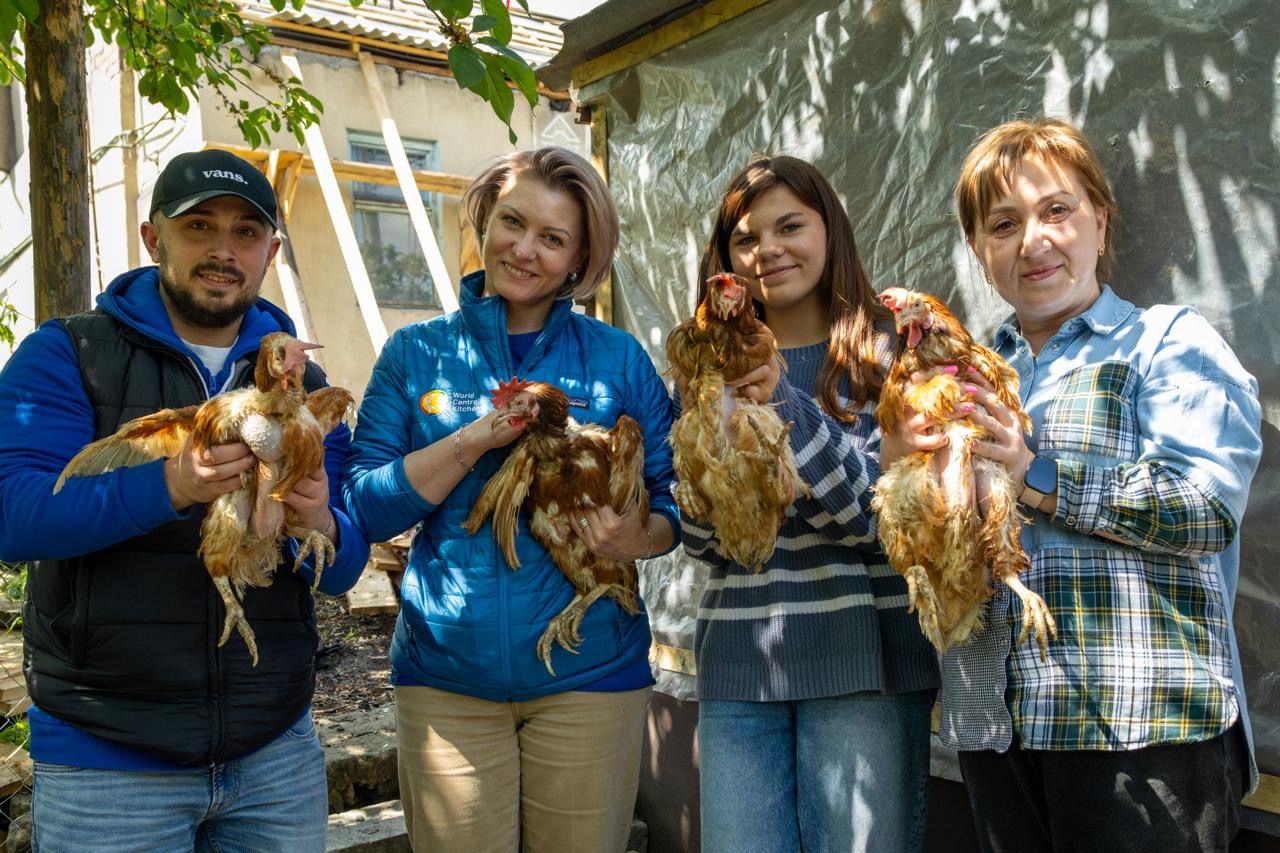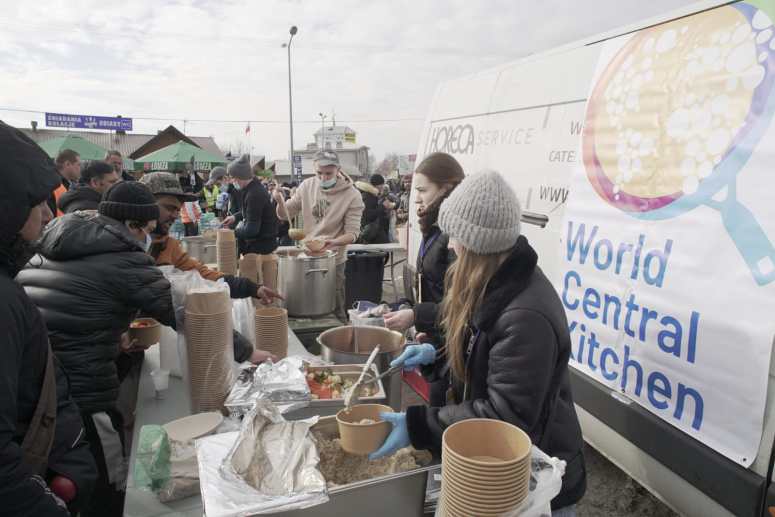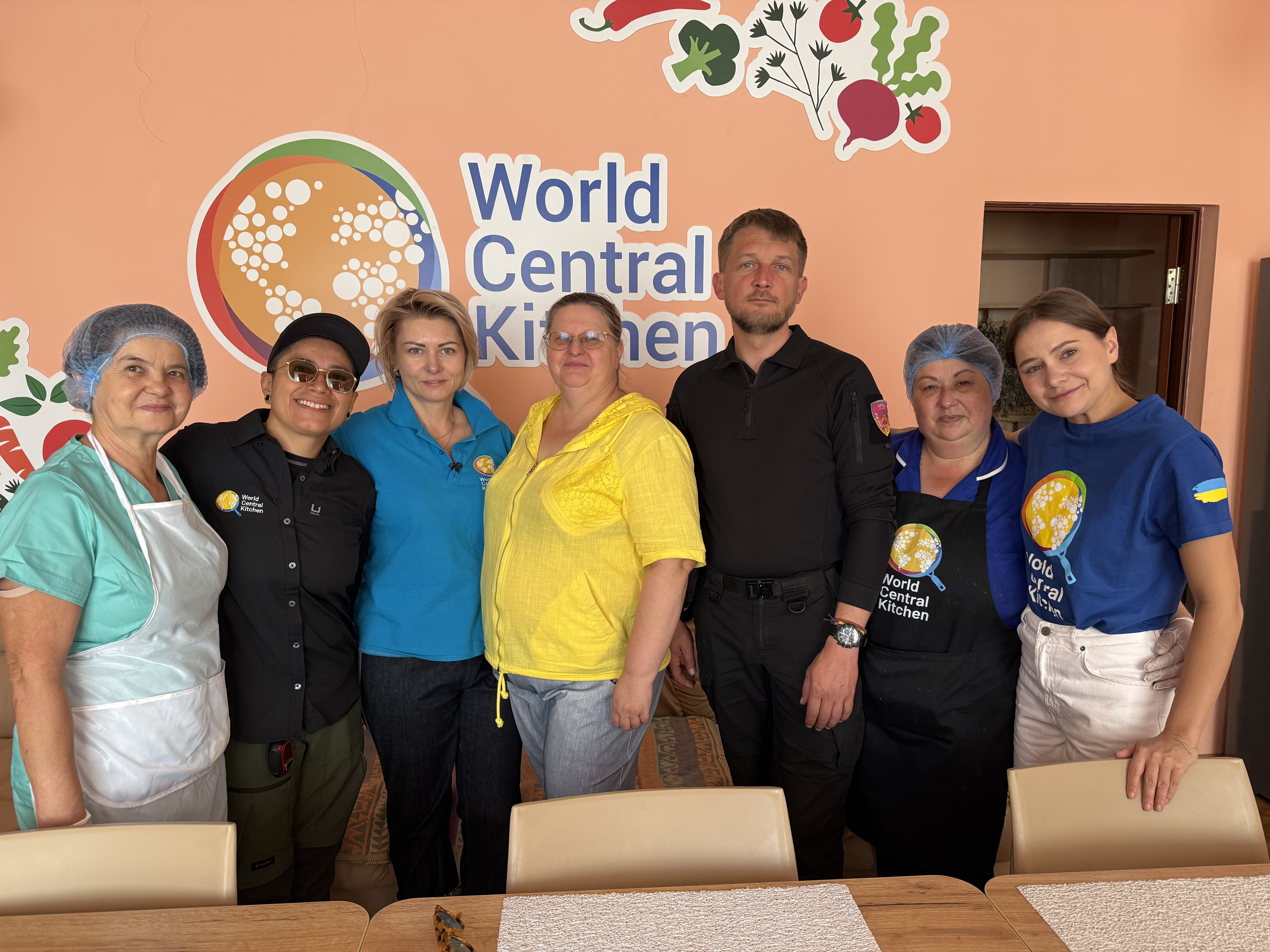How the Chicken Kit Project Is Helping Ukrainian Families

Since the full-scale invasion of Ukraine in February 2022, World Central Kitchen has supported families with hot meals, food kits, vegetable kits, and seed distributions. During that time, our approach has evolved dramatically. Now, we think about what comes next—how to help people not just get through the day, but be self-sufficient in the long term.
That’s where the idea for the Chicken Kit Project came from. It’s simple: give families hens, feed, and basic supplies so they can collect fresh eggs at home. These hens are not just food for the table, but something to care for– and that brings a bit of normal life back.
Each kit includes ten vaccinated hens along with 100 kilograms of high-quality feed and a water bucket.
“We had to study everything,” says Yevhen, who now coordinates the Chicken Kit Project. “We hadn’t worked with poultry before, so I had to dig into the details—what breeds to select, what’s best for our goals, whether we go with meat birds or laying hens, whether we start with chicks or adult hens. Every step had to be thought through.”
At first, the team considered distributing day-old chicks. “But we realized that in regions where there’s active fighting and evacuations, it just wasn’t realistic,” he said. “It takes four months to raise a chick to a laying hen. You need light, you need heat, vaccinations, and veterinary medicine, so the risk of failure would be high.”
Instead, the team decided to provide hens that were ready to start laying eggs almost immediately.

For some, a hen laying eggs might seem ordinary, but in a place where shelling happens every day, it’s a symbol of life, and a sense of tomorrow.
Serhii
WCK Regional Lead, Donetsk
On top of that, WCK had to build a new supply chain from scratch. “A lot of the big producers don’t sell in small batches or deliver to frontline areas,” Yevhen said. “And this isn’t something you can just drop off and leave.”
The first deliveries took place in the Donetsk region. “For some, a hen laying eggs might seem ordinary,” said Serhii, WCK’s Regional Lead there. “But in a place where shelling happens every day, it’s a symbol of life, and a sense of tomorrow.”
That sense of tomorrow came to life in Orikhiv, Zaporizhzhia region—one of the most heavily affected areas near the front line. In early May, WCK delivered 800 hens to 80 households in the town. Among them was Mykola, a local resident who had long dreamed of raising poultry but never imagined it would be possible.
When Olga, WCK’s Ukraine Country Lead, first visited Orikhiv months earlier, she spoke with residents about their needs. Mykola and his neighbors had already received seed kits and were eager to grow food. When the conversation turned to chickens, they were interested—but doubtful. “Where would we get the feed?” they asked. “No one brings chickens here.” We took those concerns into account and made sure we could plan a program that overcame the challenges.
When Olga returned this spring—this time with chickens—Mykola greeted her with a hug. “He was stunned,” she said. “He truly didn’t think it would happen. It reminded us why we do this work—to show up for people in ways they didn’t think were possible.”
Olga and Mykola unload Mykola’s chickens
In Dnipropetrovsk Oblast, we delivered chickens to Yana, a 15-year-old volunteer who has supported her community with WCK since she was 13. WCK met Yana after she left her hometown in 2022. She became a WCK volunteer distributing aid in her new community in Ternivka. “I’m a bit afraid of these chickens,” she admitted, “but I’m very happy you brought them to us.”
“Recently, all the new projects we’ve done have been focused on self-sufficiency. We really aim to give people the opportunity to take care of themselves,” says Olga. “The chickens are just one part of that. But they’re a powerful part.”
WCK has now completed chicken kit deliveries across seven regions—Donetsk, Zaporizhzhia, Kherson, Mykolaiv, Dnipropetrovsk, Khmelnytskyi, and Kharkiv—reaching hundreds of families with the tools to produce food right at home. The pilot phase is complete, and the team is now evaluating what’s next.
“These kits aren’t just about food,” Yevhen reflects. “It’s a different kind of project. You’re giving people a living creature—something that depends on them. There’s emotion, responsibility. It’s therapeutic in a way.”
Help us support families in Ukraine











